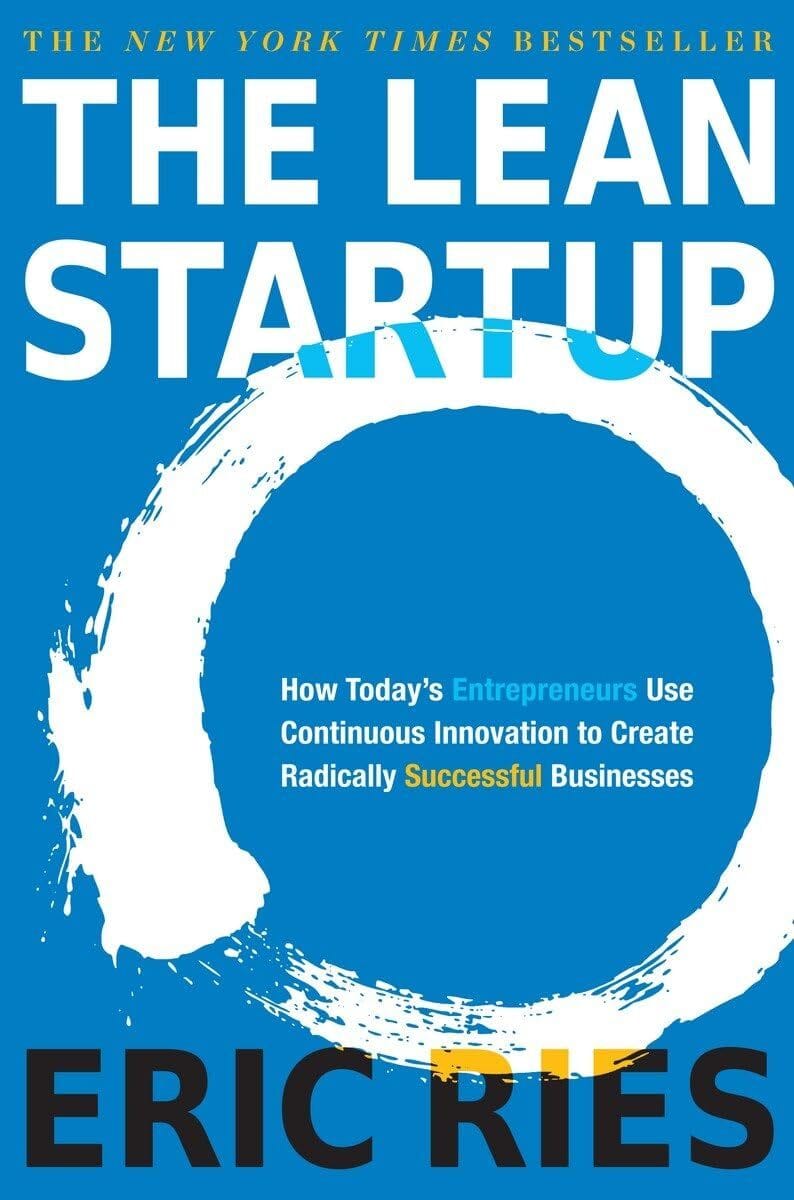
From The Editor’s Desk
Hey Hustlers,
Welcome to another power-packed edition of African Hustle! This week, we’re diving deep into one of entrepreneurship's most important yet often overlooked aspects: “conquering yourself.”
If you've ever felt like your biggest enemy is staring back at you in the mirror, this one’s for you!
In addition to this, we’re keeping it diverse and rich with insights:
Bootstrapping your business is an art that many African entrepreneurs have mastered. It’s a challenge, but nothing’s impossible when you’re resourceful and resilient!
Have you ever heard of Gule Wamkulu? We're taking a journey into this fascinating cultural dance of the Chewa people.
For the bookworms, we’ve got a breakdown of lessons from The Lean Startup by Eric Ries.
Our local hero spotlight shines on Yetunde Ayo-Oyalowo, founder of Market Doctors in Nigeria. Her grassroots initiative is transforming healthcare access in local communities.
We’re also zooming in on Spaza Eats, a startup revolutionizing on-demand food and goods delivery services in South Africa.
Finally, we’re capping things off with some beauty and wanderlust. We’re taking you to Bwindi Impenetrable National Park in Uganda.
As always, our goal is to inspire, empower, and celebrate African entrepreneurs like you. Let’s keep building greatness, one hustle at a time.
UPwards & ONwards

In This Issue
Word Of The Day
Bootstrapping
: The process of building a business from scratch without attracting investment or with minimal external capital
(Source: Corporate Finance Institute)
Main Issue
One day at a Hustle Conference, I’ll tell you a story about my love for meat—and how I spent over a year as a vegetarian just to conquer myself and my cravings. It worked! I’ve got friends with strict gym routines and quirky habits, all in the name of self-mastery and discipline. For most of them, developing healthy habits and self-control is the key to success in many areas of their lives. So, what are you doing to master your thoughts and emotions?
Why You Should Conquer Yourself
As entrepreneurs, the journey of building a business is as much about personal growth as it is about profit and scalability. The greatest challenge often isn’t in the marketplace - it’s within.
Mastering oneself is the cornerstone of entrepreneurial success. Ancient wisdom, modern psychology, and even religious teachings agree that conquering or overcoming ‘self’ is one of life’s most powerful victories.
He who conquers others is strong; he who conquers himself is mighty.
When you embark on the entrepreneurial path, you quickly realize that your mindset can be your greatest ally or worst enemy. From procrastination to self-doubt, your internal battles can derail your dreams. By conquering these tendencies, you unlock your full potential, positioning yourself to face external challenges head-on.
Whoever is slow to anger is better than the mighty, and he who rules his spirit than he who takes a city.
The ability to stay disciplined and focused on your goals is what sets you apart. Conquering yourself means developing the discipline to push through discomfort and resist distractions. This isn't just about hard work - it's about working smart, recognizing when to step back, and aligning your daily habits with your long-term vision.
It is better to conquer yourself than to win a thousand battles. Then the victory is yours. It cannot be taken from you, not by angels or by demons, heaven or hell.
Emotional control is also vital in entrepreneurship. The highs and lows of business can wreak havoc on your mental well-being if you aren’t grounded. By mastering your emotions, you respond to setbacks with poise rather than panic. This emotional intelligence helps you navigate challenges and build stronger relationships with your team, clients, and partners.
The true servants of the Most Compassionate are those who walk on the earth humbly, and when the foolish address them improperly, they only respond with peace. (Those who have subdued the ego have mastered the world.)
Finally, conquering the ego is crucial. Ego-driven decisions can blind you to new opportunities, alienate potential collaborators, and stunt your personal growth. Humility allows you to learn, adapt, and grow continuously. Successful entrepreneurs know that long-term success requires self-awareness and accepting when you’re wrong.
There is little that can withstand a man who can conquer himself.
Mastering yourself is the foundation upon which entrepreneurial greatness is built. It takes practice, persistence, and patience, but the rewards are immense. You set yourself up for true, sustainable success by conquering your inner world.
You have power over your mind – not outside events. Realize this, and you will find strength.
Your external challenges, whether competition, market fluctuations, or setbacks, are manageable when you’ve mastered yourself. When you are grounded, focused, and in control of your emotions, nothing outside of you can shake your resolve.
By conquering your inner doubts, fears, and weaknesses, you build an unshakable foundation. As a result, the obstacles you face in the business world become mere stepping stones to success, not insurmountable roadblocks.
If there is no enemy within, the enemy outside can do us no harm
Knowledge Corner
African entrepreneurs often have to bootstrap their way to success, doing a lot with very little. I had to write about bootstrapping because the media tends to glorify startups raising millions in funding. This can leave young entrepreneurs feeling discouraged if they don’t have access to venture capital, making them think they can't succeed without it. But that’s far from the truth!
Bootstrapping: Building a Business from the Ground Up
Bootstrapping is a term that resonates with entrepreneurs and startup founders who have a vision but lack substantial financial backing.
In an era where venture capital and angel investments dominate headlines, bootstrapping stands as a pragmatic, often underappreciated strategy for building a company on your terms, with minimal outside interference.
At its core, bootstrapping is about using personal savings, reinvesting profits, and maintaining a lean operation to fuel growth. It requires discipline, creativity, and an unwavering belief in your product or service.
While many entrepreneurs dream of securing millions in venture capital, the truth is that bootstrapped companies can achieve impressive success - and often have a higher likelihood of long-term sustainability.
Why Bootstrapping Works
Full Ownership and Control: The most obvious advantage is that founders retain full ownership. Without external investors, you control the vision, strategy, and pace of growth. Your company remains yours, allowing you to make long-term decisions without pressure to deliver short-term gains to investors.
Lean Operations Drive Innovation: With limited resources, bootstrapped businesses often operate with heightened efficiency. When every dollar counts, it forces founders to prioritize spending, focus on core activities, and find innovative ways to solve problems. This lean approach frequently leads to more sustainable business models.
Customer-Centric Growth: Bootstrapped companies must rely on customer revenue rather than investor capital. This focus on customers can be a competitive advantage, pushing founders to listen more closely to feedback and iterate their offerings faster. Customers become a key part of the growth engine, offering validation and funding simultaneously.
Realities to Consider
Bootstrapping does come with challenges. Without significant capital, growth can be slower, and founders might struggle to scale as quickly as they’d like.
Cash flow management becomes critical, as there’s no safety net of external funding to fall back on during lean periods.
Burnout is also a real risk, with founders often wearing multiple hats to keep operations running.
Many of the successful companies that we see today had their humble beginnings as bootstrapped enterprises. Examples of these include:
Dell Computers
Meta (formerly Facebook)
Apple
Clorox
Coca Cola
Hewlett-Packard
Microsoft
Oracle
eBay
Cisco Systems
SAP
Is Bootstrapping Right for You?
For founders passionate about preserving control, operating lean, and growing at their own pace, bootstrapping is a viable path. It demands resilience, patience, and creativity but can result in a deeply fulfilling entrepreneurial journey.
While it may not grab as many headlines as high-flying, venture-backed startups, bootstrapping offers something far more valuable: sustainable, customer-driven growth that’s fully under your control.
In a world where chasing funding is an obsession and business in itself, bootstrapping reminds us that the best businesses aren’t always built on capital - they’re built on grit.
Book of The Month
We're diving into The Lean Startup by Eric Ries for the second and final time. But remember, if you don’t send in your book recommendations, you'll be stuck with my favourites! Feel free to reply to this email with your suggestions—especially if you have some powerful reads from African authors. We'd love to hear from you!
The Lean Startup

The book is a seminal guide for entrepreneurs, focusing on creating a sustainable and scalable business by minimizing waste and maximizing learning. Its core principle is continuous innovation through experimentation, customer feedback, and adaptive design.
Build-Measure-Learn Feedback Loop
Entrepreneurs should focus on rapidly building a Minimum Viable Product (MVP), the simplest version of a product that can be released to customers. The goal is to quickly gather feedback, measure results, and learn whether to pivot (change direction) or persevere (continue refining the current idea).Validated Learning
Instead of working on assumptions, entrepreneurs should test their ideas with real data. Validated learning is the process of conducting experiments and gathering evidence to prove (or disprove) that a product or service solves a real problem for customers.Start Small and Experiment
Startups should launch small, focusing on core features and gradually expanding based on customer feedback. By running small, low-cost experiments, entrepreneurs can test different aspects of their business model and determine what works before fully committing resources.Pivot or Persevere
If a hypothesis is disproven during the validation process, it’s important to pivot and make a fundamental change in strategy without abandoning the core vision. If the experiment succeeds, entrepreneurs should persevere and scale their efforts.Measure Success with Actionable Metrics
Use of actionable metrics over vanity metrics. Actionable metrics provide clear insight into customer behaviour and the business’s growth, helping entrepreneurs make informed decisions. Vanity metrics, like website traffic or app downloads, might look good but don't necessarily indicate true growth or value.Innovation Accounting
This is a method of tracking progress when traditional accounting doesn't apply, especially in early-stage startups. It focuses on using metrics that show how quickly a startup is learning, testing hypotheses, and moving towards sustainability.Customer-Centric Development
A strong focus is placed on customer feedback at every stage of development. By deeply understanding the customer’s needs and building around those insights, entrepreneurs create products that solve real problems, ensuring long-term success.Continuous Deployment and Iteration
Instead of waiting for a perfect product, Lean Startup advocates for continuous deployment - releasing updates frequently based on real-time customer feedback. This helps the business evolve continuously and remain responsive to market needs.Removing Waste
Entrepreneurs should eliminate activities that do not add value to customers or the product’s development. This minimizes costs and time spent on unnecessary efforts, aligning resources more effectively to create a viable business.Sustainable Growth
Ries emphasizes building a sustainable growth model based on understanding how your product spreads—through word of mouth, paid advertising, or repeat customers. Growth should come from satisfied customers who bring in more users, creating a long-term growth engine.The Role of Vision
While agility and responsiveness are key in the Lean Startup, Ries emphasizes the importance of maintaining a clear vision. Entrepreneurs need to balance flexibility with the original purpose of the startup, ensuring they don't lose sight of their core mission while iterating.
Tech
Meta’s Orion AR Glasses: The Future of Communication?
Meta has recently unveiled its groundbreaking Orion AR glasses, which are being hailed as the future replacement for smartphones. These glasses, introduced at Meta Connect 2024, feature advanced augmented reality (AR) capabilities, including a 70-degree field of view, neural wristband control, and a wireless compute puck for enhanced usability.
Key Features:
Holographic Displays: Orion glasses use holographic projection to overlay digital information onto the real world, providing an immersive AR experience3.
Smart Assistant Integration: Equipped with Meta AI, these glasses respond to voice commands, eye movements, and hand gestures, making interaction seamless3.
Neural Wristband: This innovative control method allows users to swipe, click, and scroll with simple wrist movements2.
Implications for Entrepreneurs
For entrepreneurs, especially those in tech and innovation sectors, the Orion AR glasses represent a significant leap forward. They offer new opportunities for developing AR applications that can enhance productivity, customer engagement, and remote collaboration. The potential to integrate these glasses into various business operations could revolutionize how tasks are performed and how information is accessed and shared.
StartUp Spotlight
Spaza Eats
I’ve recently connected with an incredible entrepreneur on LinkedIn by the name of Talifhani Banks. I always like meaningful connections hence read a little on my new connection - et voilà - I came across Spaza Eats. Banks is the founder of Spaza Eats lauded as the Uber Eats of townships.
Spaza Eats is a delivery platform that focuses on providing food, groceries, and other essential items to residents of South African townships. Unlike other delivery services, Spaza Eats is deeply integrated into local communities, offering traditional South African dishes and supporting local suppliers.
The platform aims to digitize informal markets, creating opportunities for financial inclusion and making it easier for small businesses to reach a broader customer base.
Spaza Eats aims to link up spaza shops, small-scale farmers, and township cuisine stores directly with their communities.
Since launching in July 2023, the service has amassed over 60,000 customers and onboarded 4,500 merchants.
Its delivery personnel has grown to 1,105 independent motorcycle drivers and seven full-time drivers.
Up until Talifhani had come along, the township market had remained relatively unexplored as industry giants avoided the areas to minimise safety risks.
Spaza Eats is playing a crucial role in digitizing informal markets. By bringing these businesses online, the platform is creating opportunities for financial inclusion. Small business owners can now tap into the digital economy, expanding their reach and increasing their revenue potential.
Local Heroes
Yetunde Ayo-Oyalowo

Yetunde Oyalowo is a pioneering Nigerian entrepreneur and healthcare advocate. She is the founder of Market Doctors, a social enterprise dedicated to providing affordable and accessible healthcare services to underserved communities in Nigeria.
Yetunde’s journey began with a strong educational foundation in health sciences. She pursued her studies in Nigeria, where she developed a deep understanding of the healthcare challenges faced by many Nigerians, particularly those in rural and low-income areas.
Yetunde founded Market Doctors with the vision of bridging the healthcare gap in Nigeria. The organization operates mobile clinics that travel to markets and rural areas, offering medical consultations, treatments, and preventive care. This innovative approach ensures that even the most remote communities have access to essential healthcare services.
Under her leadership, Market Doctors has grown significantly, impacting thousands of lives. The initiative has been particularly beneficial for women and children, who often face the greatest barriers to healthcare access. Yetunde’s work has been recognized both locally and internationally, earning her numerous awards and accolades for her contributions to public health.
Yetunde Oyalowo’s efforts have not only improved healthcare access but have also raised awareness about the importance of preventive care and regular medical check-ups. Her dedication to social entrepreneurship serves as an inspiration to many, highlighting the power of innovative solutions in addressing critical societal issues.
Yetunde continues to advocate for better healthcare policies and practices in Nigeria, striving to create a healthier and more equitable society.
African Proverb Of The Week

Proverb:
A person is a person because of other people. (I am because you are).
Meaning:
Our identity and humanity are influenced by our connections and interactions with others. The proverb highlights the importance of community. We all need each other.
Inside Africa
Bwindi Impenetrable National Park, Uganda

By Josefito123 - Own work, CC BY-SA 4.0
Bwindi Impenetrable National Park is located in the southwestern part of Uganda on the rim of the Rift Valley.
The forest is one of the most biologically diverse areas on Earth. Half of the world's population of the highly endangered mountain gorillas live within its borders.
At present the forest is believed to contain 120 mammal species, 348 bird species, 220 butterfly species and 27 frog species.

While mountain gorillas are the most notable of the forest's primates, other residents include forest elephants, yellow-backed duikers, chimpanzees, blue monkeys, l’Hoest’s monkeys, red-tailed monkeys, vervet monkeys and black-and-white colobus monkeys.
The forest's birds include great blue turacos, black-billed turacos, black bee-eaters, African green broadbills, handsome francolins, African black ducks and Cassin’s grey flycatchers, white-tailed blue flycatchers, brown-necked parrot, white-bellied robin chat.

It is often referred to as the “Switzerland of Africa” by travellers, due to its breathtaking green landscapes.
Culture
Gule Wamkulu
I grew up in a ghetto. And on some occasions masked and eerily dressed men would run and dance along the streets uttering strange chants. This used to scare and delight me at the same time. We called these strange men, “Zvigure”
Gule Wamkulu is more than just a performance; it's a secretive and deeply rooted cultural practice among the Chewa people in Malawi, Zambia, Mozambique and some parts of Zimbabwe.

© Malawi National Commission for UNESCO
At its heart, this ritual dance is performed by members of the Nyau brotherhood, a hidden society of men who have been initiated into its ranks. In the traditional matrilineal Chewa society, where men often had a secondary role in family structures, Nyau gave men a way to unite across villages and assert a sense of solidarity.
Today, Nyau members continue to guide young men through their initiation into adulthood, with Gule Wamkulu marking the final step - a celebration of their acceptance into the adult world.
Though Gule Wamkulu is usually performed after the July harvest, it also plays a role in major life events such as weddings, funerals, and the installation or death of a chief. The dancers, wearing elaborate costumes and masks made from wood and straw, embody a wide range of characters—wild animals, spirits, figures from the past like slave traders, and even modern-day symbols like helicopters. Each character has a specific role, often portraying negative traits or behaviours to teach moral and social lessons. These performances are packed with energy, both captivating and frightening the audience as they are meant to represent the spirits of the dead.

© Malawi National Commission for UNESCO
Dating back to the powerful Chewa Empire in the 17th century, Gule Wamkulu has survived through various challenges, including efforts by Christian missionaries to ban it. Under British colonial rule, it adapted by incorporating some elements of Christianity, allowing it to endure. Today, many Chewa men are part of both a Christian church and the Nyau society. However, over time, the original spiritual and cultural significance of Gule Wamkulu is fading, as it becomes more of a tourist attraction or a political tool, rather than a sacred rite.
AND THAT’S A WRAP
Did you enjoy this newsletter? We kindly ask you to forward it to a friend and have them signup here.
More subscribers mean more engagement. More engagement moves us up the charts. And moving up the charts means we reach even more entrepreneurs.
With your support, we can continue creating valuable content, fostering a vibrant community, and driving entrepreneurial success across Africa.
Until next time
Happy Hustling.


